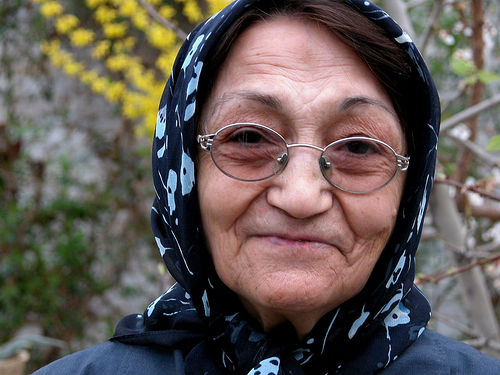 We can all be a little forgetful sometimes, but Alzheimer’s can come on slowly and eventually make life unmanageable for seniors affected by the disease.
We can all be a little forgetful sometimes, but Alzheimer’s can come on slowly and eventually make life unmanageable for seniors affected by the disease.
The signs to watch for:
- Difficulty remembering names or familiar places or people.
- Trouble keeping track of medications and forgetting appointments.
- Noticeable decline in personal hygiene.
- Uncharacteristic trust of telemarketers or paranoia toward family.
- Confusion about where one is or how they got there.
- Forgetting to pay bills.
- Putting objects where they don’t belong like keys in the freezer or milk under the sink.
Alzheimer’s is a type of dementia that causes a decline in memory, thinking and behavior. Symptoms usually develop over a long period and progressively worsen. It is not a normal part of aging, yet the majority of those with Alzheimer’s are 65 or older. It is the sixth leading cause of death in the United States.
Scientists think it results from plaque deposits and nerve tangles that kill nerve cells in the brain, leading to memory failure, personality changes and other symptoms. Alzheimer’s is not the only cause of memory loss and symptoms of Alzheimer’s can start off mild, so it is important to talk to a doctor and get a diagnosis.
Once the senior and loved ones know what is going on, certain arrangements need to be made. In many cases, the roles can become reversed with adult children caring for elders who slowly lose their capacity to function as independent adults who have good judgment and can communicate effectively.
For the senior’s own protection, the family needs to discuss financial and legal arrangements with a strategy to maintain the aged person’s quality of life as much as possible. None of us want a loved one to be vulnerable to telemarketers or put themselves into dangerous situations because there isn’t a caregiver around. It’s important to discuss these unpleasant realities in the early stages of dementia so the senior can express his or her wishes to some degree.
Losing control is a scary thing to even think about, but there is hope.
Regency Retirement Village of Tuscaloosa offers a special unit dedicated to treat those with Alzheimer’s and other memory related disorders. Our Pathways Memory Care offers the finest elderly care in a safe, secure environment, complete with an enclosed outdoor courtyard. Some seniors with dementia who live alone and still drive cars have found themselves miles away from home, confused how they got there.
Pathways Memory Care residents enjoy three delicious meals and snacks every day. We also help with getting dressed, bathing & grooming, managing medications, weekly housekeeping and laundry services, and daily activities.
The specially trained caregivers in Pathways Memory Care listen and learn as much as possible about your loved one so we can create a program of care and support for them. Research shows that people with memory impairments function better in an environment of simplicity, with less confusion and a structured routine. By partnering with families, we can create a personal program of activities for each resident.
For more information on Pathways Memory Care or to schedule a free consultation, visit https://regencytuscaloosa.com/retirement-home-amenities/memory-care-retirement-community
Further reading:
Alzheimer’s Association: http://www.alz.org/
The Alzheimer’s Disease Education and Referral Center: http://www.nia.nih.gov/alzheimers
Alzheimer’s Reading Room: http://www.alzheimersreadingroom.com/
The New York Times “New Old Age” Blog: http://newoldage.blogs.nytimes.com/

